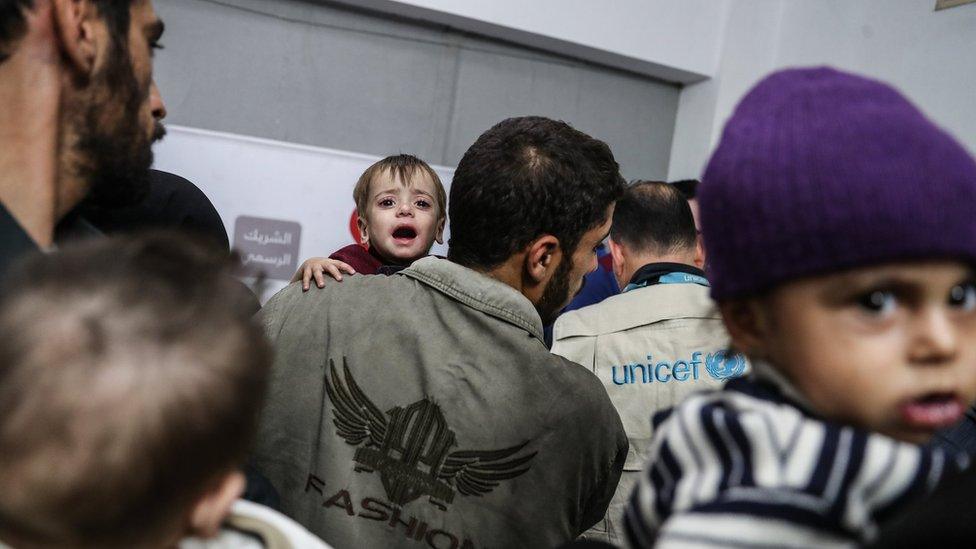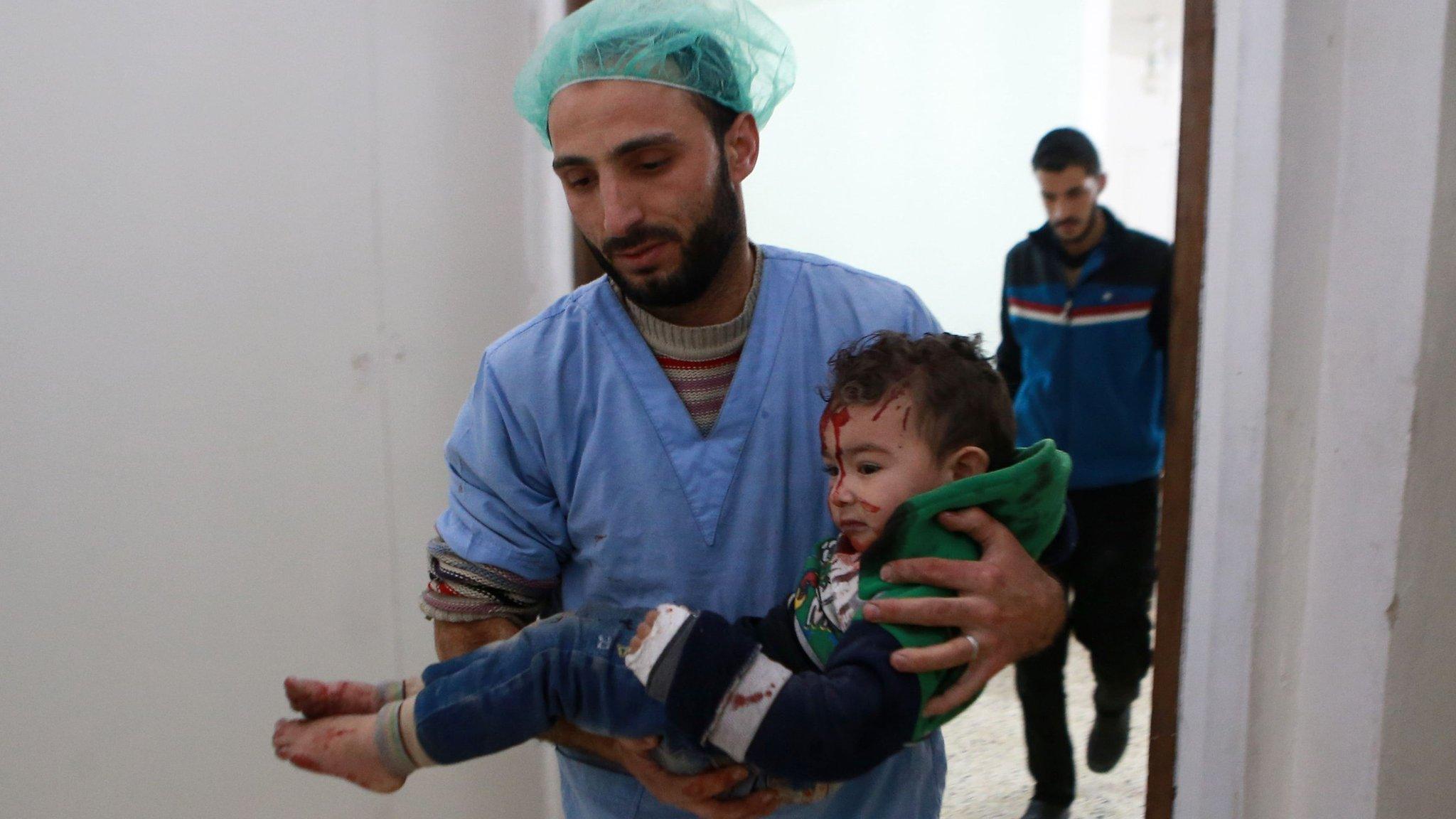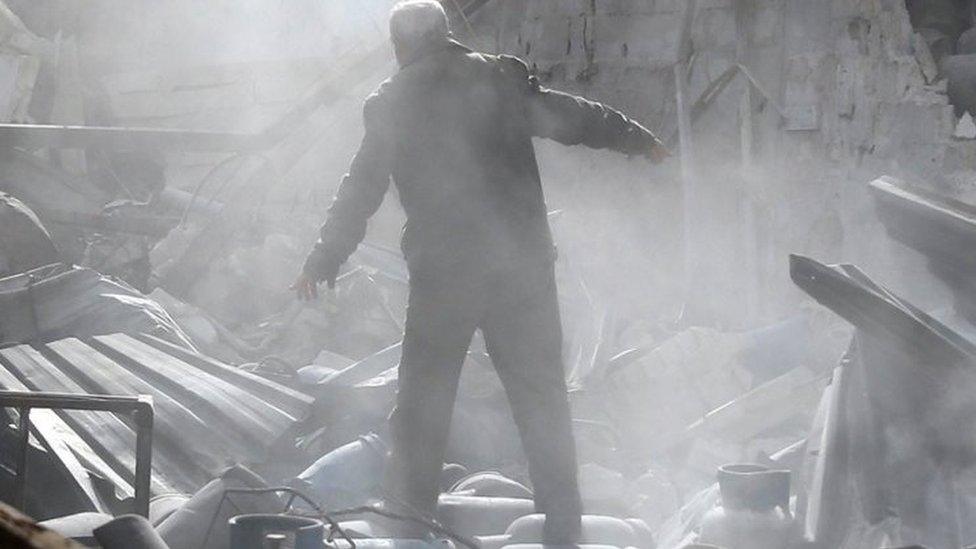Syria war: Situation in Eastern Ghouta at 'critical point'
- Published

Food shortages have led to the acute malnutrition rate among children rising to 11.9%
The situation in a besieged rebel-held area near Syria's capital has reached a "critical point", the International Committee of the Red Cross has warned.
Scores of civilians have been killed or injured in the Eastern Ghouta in the past month and life is slowly becoming "impossible", the organisation says, external.
About 500 people are waiting to be evacuated for life-saving medical care.
There are also shortages of food, fuel and medicines, and the cold weather threatens to worsen the hardship.
"Chronic disease sufferers and people with severe injuries are struggling to access care," said the ICRC's Middle East director, Robert Mardini.
"The sick and injured must not be used as pawns in negotiations between the different parties involved in the fighting. Medical attention must be promptly given to those who need it irrespective of who they are."
The 400,000 people trapped in the Eastern Ghouta are also facing a "frightening" food shortage and a huge increase in food prices, according to the ICRC.
"Some families can afford to eat only one meal a day, an especially sad situation for people with children. As a result, most people have been relying entirely on aid from humanitarian organisations," Mr Mardini said.
Children in rebel-held Eastern Ghouta are among those suffering
The Eastern Ghouta has been under siege by government forces since 2013.
The area has been designated a "de-escalation zone" by Russia and Iran, the government's main allies, along with Turkey, which supports the opposition.
But hostilities intensified on 14 November, when the Syrian military stepped up air and artillery attacks on the enclave in response to a rebel offensive.

Although the government agreed to truce on 28 November, the fighting has continued.
Last week, the UN's humanitarian co-ordinator for Syria rebuked Russia and Iran for not doing more to give aid agencies access to the Eastern Ghouta.
Jan Egeland told the BBC that the failure to persuade the government to allow desperately ill children to be evacuated to hospitals only 30 minutes' drive away in Damascus showed "complete impotence".
- Published7 December 2017

- Published26 November 2017

- Published27 November 2017
- Published2 May 2023
